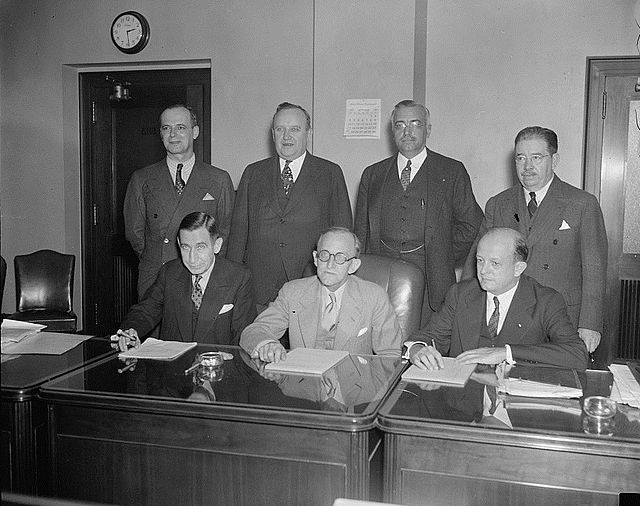Federal Communications Commission
The Federal Communications Commission (FCC) is an independent agency of the United States government that regulates communications by radio, television, wire, satellite, and cable across the United States. The FCC maintains jurisdiction over the areas of broadband access, fair competition, radio frequency use, media responsibility, public safety, and homeland security.
Former Federal Communications Commission Office in Washington, D.C.
Federal Communications Commission seen in Washington, D.C., in 1937. Seated (l-r) Eugene Octave Sykes, Frank R. McNinch, Chairman Paul Atlee Walker, Standing (l-r) T.A.M. Craven, Thad H. Brown, Norman S. Case, and George Henry Payne.
FCC commissioners inspect the latest in television, December 1, 1939.
Independent agencies of the United States government
In the United States government, independent agencies are agencies that exist outside the federal executive departments and the Executive Office of the President. In a narrower sense, the term refers only to those independent agencies that, while considered part of the executive branch, have regulatory or rulemaking authority and are insulated from presidential control, usually because the president's power to dismiss the agency head or a member is limited.
The headquarters of the Federal Reserve System
A USPS truck in the snow





